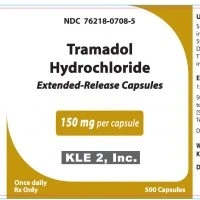Pressure, tightness, discomfort, or a squeezing or hurting sensation in your chest or arms that may extend to your neck, jaw, or back are common indications and symptoms of a heart attack. Nausea, indigestion, heartburn, or stomach discomfort are all possible symptoms. Breathing difficulty. Tramadol 150mg Online
Not all heart disorders have obvious warning symptoms. There isn't usually a startling chest grab followed by a tumble to the floor, as seen in movies. Some heart symptoms may not even manifest in your chest, and it is not always easy to determine what is wrong.
According to Vincent Bufalino, MD, an American Heart Association representative, this is especially true if you are 60 or older, overweight, or have diabetes, high cholesterol, or high blood pressure. "The more risk factors you have," he adds, "the more concerned you should be about anything heart-related."
Keep an eye out for the following issues:
1. Discomfort in the Chest
It is the most prevalent warning sign of a heart attack. You may experience discomfort, tightness, or pressure in your chest if you have a blocked artery or are suffering a heart attack.
"Everyone has their own phrase for it," Chambers explains. "Some say it's as if an elephant is sitting on them. Others describe it as a pinching or burning sensation."
The sensation frequently lasts more than a few minutes. It might happen when you're sleeping or doing anything physical.
If it's only a momentary discomfort, or if it hurts worse when you touch or push on it, it's probably not your heart, according to Chambers. You should still see a doctor about it. If the symptoms are more severe and do not subside within a few minutes, contact 911.
Also, bear in mind that you might have cardiac issues, including a heart attack, without experiencing chest discomfort. This is especially frequent among women.
2. Nausea, vomiting, indigestion, heartburn, or stomach pain
During a heart attack, some people experience these symptoms. According to Chambers, they may even vomit. Women are more likely than males to report this sort of symptom.
Of course, you might have an upset stomach for a variety of causes unrelated to your heart. After all, it may just be something you ate. However, you should be aware that it can also occur during a heart attack.
3. Pain radiating to the arm
Another common sign of a heart attack is discomfort radiating down the left side of the body. "It usually often begins in the chest and spreads outward,
4. You have a dizzy or lightheaded feeling
A variety of factors might cause you to lose your balance or feel faint for a brief period of time. Perhaps you didn't eat or drink enough, or you stood up too quickly. "It might be that your blood pressure has fallen because your heart isn't pumping as well as it should," Bufalino explains.
5. Throat or jaw discomfort
Throat or jaw discomfort by itself is unlikely to be connected to the heart. It's more usually caused by a muscle condition, a cold, or a sinus condition. However, if you have discomfort or pressure in the middle of your chest that radiates into your throat or jaw, this might be an indication of a heart attack.
6. You are easily exhausted.
Make an appointment with your doctor immediately immediately if you suddenly feel exhausted or breathless after doing something you had no issue doing in the past, such as ascending the stairs or carrying groceries from the vehicle. Tramadol 50Mg Online
7. Snoring
It's natural to snore a bit when sleeping. However, very loud snoring that sounds like gasping or choking might indicate sleep apnea. That is when you stop breathing for a few seconds multiple times during the night while still sleeping. This puts additional strain on your heart.
8. Perspiring
Breaking out in a cold sweat for no apparent cause might be an indication of a heart attack. If this occurs in conjunction with any of the other symptoms, contact 911 immediately to go to a hospital. Do not attempt to drive yourself.
9. A Cough That Won't Go Away
Most of the time, this isn't an indicator of a cardiac problem. However, if you have heart disease or are aware that you are at risk, you should pay close attention to the possibilities. If you have a persistent cough with white or pink phlegm, it might be an indication of heart failure. This occurs when the heart is unable to keep up with the demands of the body, causing blood to flow back into the lungs. Inquire with your doctor about the source of your cough.
10. You Have Swollen Legs, Feet, and Ankles
This might indicate that your heart isn't pumping blood as efficiently as it should. When the heart is unable to pump quickly enough, blood backs up in the veins, causing bloating. Heart failure can also make it difficult for the kidneys to eliminate excess water and salt from the body, resulting in bloating.
11. Irregular Heart Rate
It's natural for your heart to race when you're frightened or thrilled, or for it to skip or add a beat every now and again. However, if your heart appears to be beating out of time for more than a few seconds, or if this occurs frequently, consult your doctor. Tramadol 100mg Online
"In most cases, it's triggered by something simple, like too much caffeine or not getting enough sleep," Bufalino explains. However, it may occasionally indicate a disease known as atrial fibrillation, which requires treatment. So make an appointment with your doctor to have it checked out.


